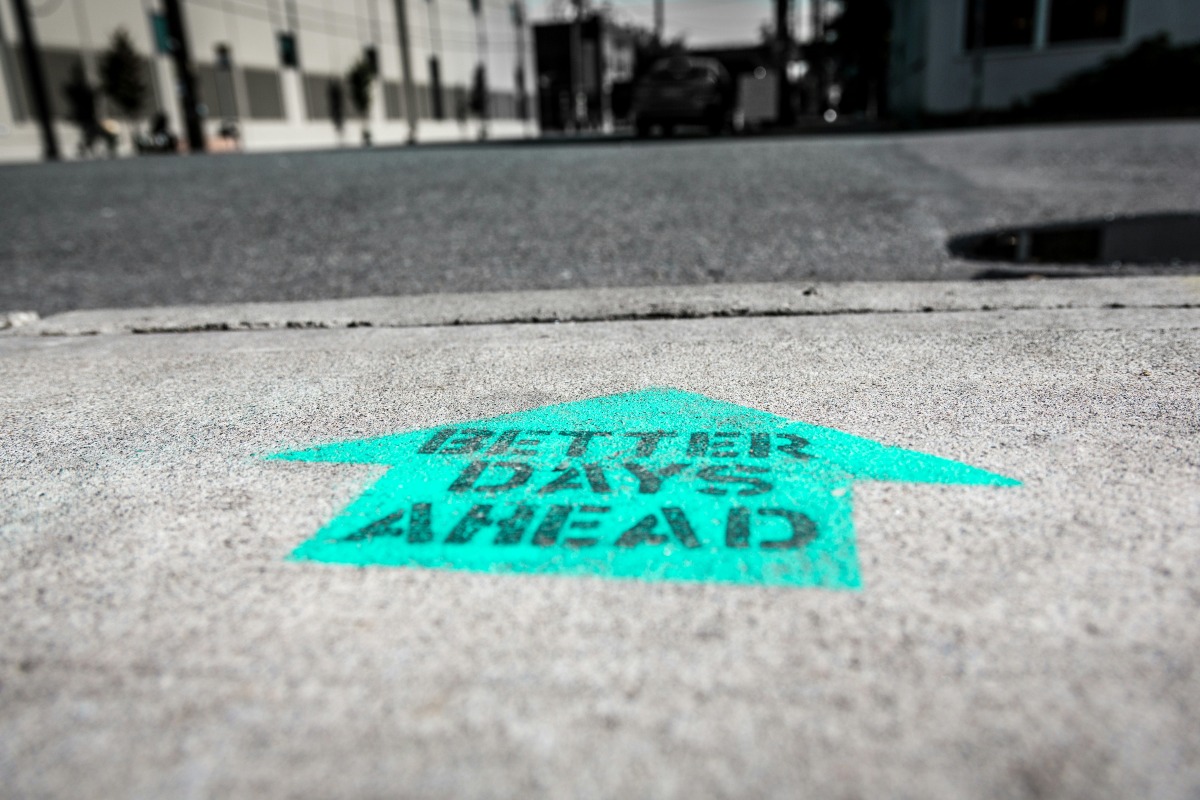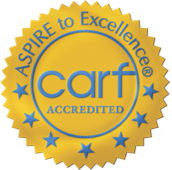Substance use disorder (SUD) impacts many different areas of life, and working to overcome addiction and its effects takes an intense amount of effort. Navigating detox, residential, and continued outpatient treatment is difficult. However, while graduating from each of these programs and moving to new levels of care and freedom should be celebrated, addiction is still a disease for which there is no “cure.” Maintaining a healthy, sober life takes continuous effort both inside and outside of a dedicated treatment facility. Mentally embracing long-term healing is necessary to develop an effective treatment plan at each stage of recovery while preparing for the continued journey of long-term healing.
Creating Stepping Stones to Long-Term Healing
Addiction is a powerful disease, and there is no “quick fix” for the disease or its physical, mental, and emotional effects. Alcohol, drugs, gambling, and any other form of addiction demand dedicated professional support to overcome. Each person will commit to a deluge of changes in their journey to a transformed life. However, that doesn’t mean that each person will have to make all of these changes at once. Embracing sobriety as a long-term healing journey is paramount to setting effective goals and expectations for oneself and understanding the purpose of each stage of treatment at Hawaii Island Recovery’s unique Hawaii rehabilitation.
Starting Long-Term Healing With Detox
Detox is the first stage of any effective and sustainable recovery journey. Ceasing the use of drugs and alcohol and removing traces of addictive substances from a person’s body is necessary to begin effective healing practices. Detox is also when urges and cravings can be most intense, especially when combined with prevalent withdrawal symptoms during detox. Discomfort, doubt, and more are all common during this time. However, this challenging step is necessary for an effective long-term healing journey.
For many, detox can be one of the most challenging aspects of recovery. Setting fair expectations for oneself during detox is necessary to effectively navigate these challenges and transition to further care. During detox programs, an individual is not expected to have figured out all of their best recovery strategies or overcome urges, cravings, anxiety, depression, and more. It is still normal to experience these challenges during this time. Likewise, graduating from a detox program does not indicate that a person is “cured” of addiction. Rather, effective long-term healing journeys to sobriety use detox as a base to build a new and sober lifestyle.
There are also many strategies and options available throughout detox to process withdrawal symptoms, manage mental health needs, and tend to personal challenges. Professional detox programs can provide education and emotional support, with Hawaii Island Recovery also offering medication-assisted treatment (MAT) to address certain specific symptoms that can be challenging or compromise a person’s sobriety during the beginning stages of their journey. While medication is not a replacement for other effective therapies, it can be another layer of support for those beginning their sober journey to develop effective skills for long-term healing.
Embracing Change in Residential Care
After detox, an individual then transitions to residential care to further support sober change. Residential care provides a curated sober environment where an individual will live alongside both sober peers at a dedicated treatment facility to develop personalized strategies for managing sobriety, urges, cravings, and exploring various mental, emotional, and spiritual healing opportunities.
Long-term healing and truly effective sobriety involve creating a new lifestyle in the absence of drugs or alcohol. Residential treatment is the time to explore new routines, experiences, perspectives, identity, and to embrace change in a safe environment. Engaging in individual and group therapy programs, experiential therapies, spiritual healing opportunities, self-care outlets, and becoming part of a community are all part of effective healing in residential treatment.
However, an individual does not necessarily have to have all their stresses figured out when entering residential treatment. Rather, an openness and willingness to explore new ideas and theories is crucial during this time. Setting expectations and goals to explore new self-care opportunities, grounding strategies, and social communities that support long-term healing in residential treatment can be a great way to make the most of this stage of treatment while being fair to oneself and one’s progress in sobriety. Engaging in new experiences in a safe and curated sober environment can also ensure that each person can give these new experiences and sober strategies their whole focus and effort to find what works best for them.
Furthering Long-Term Healing Though Outpatient Care
Just because an individual has graduated from detox and residential treatment and is living on their own in the “real world” does not mean that their journey with healing and sobriety has come to an end. Instead, outpatient care programs are an essential part of each person’s continued long-term healing journey. These programs play an important role in sustained sobriety, not only keeping a person accountable and engaged with a dedicated sober community but also addressing new stresses and challenges that manifest outside of Hawaii Island Recovery’s professional treatment facility.
Encountering people who may not understand or support a sober lifestyle, new stresses in personal life or the workplace, and more can all affect a person’s hard-earned sobriety and developing lifestyle. Outpatient treatment programs are essential for managing these stresses in a supportive environment and can provide support, structure, and community to those continuing their long-term healing journey.
While those who have graduated from residential treatment have demonstrated the necessary commitment and skills to manage stress, urges, and cravings, that doesn’t mean that those in outpatient care are immune to stress. Rather, it is completely normal to still experience urges, cravings, stress, anxiety, and even doubt during this time. Continuing outpatient care and pursuing personal endeavors are part of an evolving sober journey and are there to help each person continue to navigate these challenges while creating a transformed future.
What Does Sobriety Mean?
Sobriety is much more than just the cessation of drugs or alcohol. While many of those beginning their journey of recovery from addiction may focus on this aspect, dedicated treatment programs like those at Hawaii Island Recovery are much more. There are a few reasons why addiction recovery is not something that can be “completed” in a traditional sense.
First, addiction can have many effects on the brain, and it is completely normal for those who have even been managing their sobriety successfully for years to still experience urges and cravings, making a sober lifestyle not necessarily a destination but rather a continuously evolving lifestyle.
Second, a truly sober lifestyle is not just one devoid of drugs and alcohol. Rather, a sober lifestyle eschews addictive substances and empowers those in recovery to pursue personal goals and experiences, repairing relationships, community belonging, spiritual healing, and more. It is not just the absence of drugs and alcohol but also the journey of replacing self-destructive thoughts and behaviors and navigating other needs to pursue personal goals and holistic change. Exploring a person’s identity and interests outside of drugs or alcohol is also an ongoing journey, with new interests being developed over time, new hobbies being explored, and even new spiritual beliefs being developed.
It is a combination of abstinence, change, personal healing, and personal goals that make up a truly sober lifestyle, all while backed by a supportive and understanding community. This kind of sobriety is what makes change so impactful, not only helping to prevent relapse into past destructive lifestyles but also by constantly adapting to new goals and interests made possible in sobriety.
Planning for the Journey of Long-Term Healing
Navigating the stages of recovery and embracing an evolving approach to sobriety can be difficult. However, there are some ways that those just beginning their recovery can adopt the necessary mindset to prepare themselves for the journey ahead. For many, the idea that recovery and sobriety cannot be traditionally “completed” can be intimidating, and it is normal to feel overwhelmed throughout each person’s journey as they are faced with change after change. Working with the professionals at Hawaii Island Recovery, family members, loved ones, and peers can all empower the kind of change necessary for a truly transformed life.
Preparing for a long-term commitment can be difficult. However, there are always strategies that each person can use to stay focused and make the most of the transformative potential of recovery and sobriety.
Set Appropriate Expectations
Setting appropriate expectations and achievable goals is the cornerstone of sustainable, sober change. Understanding the goals and expectations of each stage of recovery is important to help each individual fairly judge their progress and set achievable goals for themselves. Important milestones can be small to start, such as making it an entire day without drinking alcohol. For many of those living with addiction, this goal can be exceptionally difficult, and successfully navigating those first 24 sober hours is a massive accomplishment.
Professionals are crucial for helping individuals set goals specific to their situation and journey with addictive substances. Likewise, working with peers at the same stage in recovery can empower each person to be more honest and fair to themselves. Goals that are set too high or too early in recovery without having smaller daily and weekly goals can make recovery feel overwhelming or even impossible. This unfair expectation can even cause a person to erroneously believe they aren’t making progress. Managing appropriate expectations can instead ensure that each person celebrates each new goal achieved, maintaining motivation and encouraging further engagement in effective recovery practices at any stage in their long-term healing journey.
Long-Term Healing Begins With a Daily Routine
Routines are also a powerful tool in addiction recovery. Because addiction recovery is an ongoing, long-term healing journey, finding a consistent daily routine is incredibly beneficial. For some, creating new routines around new hobbies, outpatient care, self-care, and more can be ways of ensuring that these aspects are tended to and normalized. Consistent mealtimes, bedtimes, and hygiene routines can all be great ways to construct a healthy and regular routine.
However, a consistent routine can also add a feeling of control over daily life. Knowing what to expect can empower each person to prepare for personal stresses that may be possible in the day ahead. However, routines can also empower those in recovery to better identify when something is stressing them out more than usual or identify changes in their motivation, energy, and more. An increase in urges and cravings, stress, compromised self-care, and more can all be signs that stress is impacting a person’s sober routine,
Embracing Spiritual Healing
Spirituality is an often overlooked dimension of healing, but it is incredibly important. Hawaii Island Recovery champions the opportunity to explore spiritual healing for a truly holistic approach to sobriety and healing. However, sustainable healing means tending to all of these aspects of one’s self – their physical, mental, emotional, and spiritual healing consistently. Embracing spiritual healing opportunities is necessary for long-term healing.
Incorporating spiritual healing outlets and practices in daily life can not only help build resilience in the face of stress but can provide a mantra, conviction, motivation, and more that can be instrumental in continuing to navigate the stresses and challenges of continued sobriety. Urges, cravings, stress, anxiety, and more are common at any stage of recovery, even for alumni celebrating years of sobriety. Being open to exploring spiritual healing practices and engaging in spiritually guided exercises can be a great way of preparing for long-term healing in sobriety.
Normalizing Self-Care
Self-care is any action that tends to a person’s physical, mental, or emotional health. However, it can also be easily compromised in the face of stress, with addiction h having a profound effect on even well-established self-care routines. Exploring multiple self-care outlets is paramount to creating a sustainable approach to long-term healing.
Incorporating self-care into daily routines and regularly exploring new self-care options through new experiences, communities, and hobbies can all be a great way to prepare for long-term healing in sobriety. Having a variety of practiced self-care outlets can ensure that an individual doesn’t rely too heavily on a single outlet in case that outlet is compromised in any way.
Likewise, some people may need to make some mental adjustments to avoid feeling guilty about taking time for themselves. A healthy diet, sufficient sleep, scheduling time for hobbies and relaxation, and more are all key parts of maintaining energy and motivation to challenge the stresses of a sustainable, sober life.
Managing Long-Term Healing by Building Personal Connections
Addiction can feel very isolating, and it is common to feel alone in overcoming many of the stresses and challenges at any stage of recovery. Likewise, many may feel that loved ones, friends, and family members cannot understand what they are going through. However, the effects of addiction are never truly isolated, and the disease affects not just people but also families and communities.
Fostering healthy relationships in sobriety is essential to build an effective support network for long-term healing. For many, this can be making amends with family members who may have been directly affected by addiction. Others may need to distance themselves from previous social circles if they are not supportive of a person’s sober decisions or are unwilling to make accommodations for one’s sober commitment. Developing new relationships with sober peers in residential or outpatient care can also be essential for creating a healthy support system.
Maintaining regular contact, attending outpatient group meetings with peers, attending sober social functions, and engaging in regular social outlets such as dinner with family or meetings with hobby groups can all be instrumental in challenging feelings of isolation throughout addiction recovery. These support systems can not just hold a person accountable throughout their recovery journey but can also be instrumental in celebrating milestones, providing motivation, perspective, and more, creating a more honest approach to sustainable long-term healing.
Finding Your Path
There is never one single path to a healthy and sober future, and each person’s journey with addiction recovery is unique. However, it is always a journey, and each person will have several obstacles to overcome. For some, multiple attempts at detox and recovery are necessary before the right program is found. Other journeys may have unique stresses in their personal lives that demand unique attention. Personalizing each journey is necessary for long-term healing, not just inside the walls of a treatment facility like Hawaii Island Recovery, but also personalizing the skills for use outside of the facility.
Celebrating each unique journey and milestone and setting appropriate expectations throughout healing is part of a unique and sustainable long-term healing journey. This personalization empowers each person to be the agent of sustainable, sober change.
The journey to a sustainable, sober life is difficult, and there will be challenges along the way. At Hawaii Island Recovery, we understand the holistic approach to healing needed to manage truly transformative sober change. Our dedicated Hawaii rehabilitation can help you through detox, residential, and continued outpatient support, personalizing each step of your journey to address the unique stresses and history that make up your journey with addictive substances. We also embrace the healing potential of a truly supportive community, engaging not just in effective peer support but also with the unique spiritual healing of Hawaii and the culture therein. For more information on how we can help you begin your long-term healing journey, call us at (866) 390-5070.












